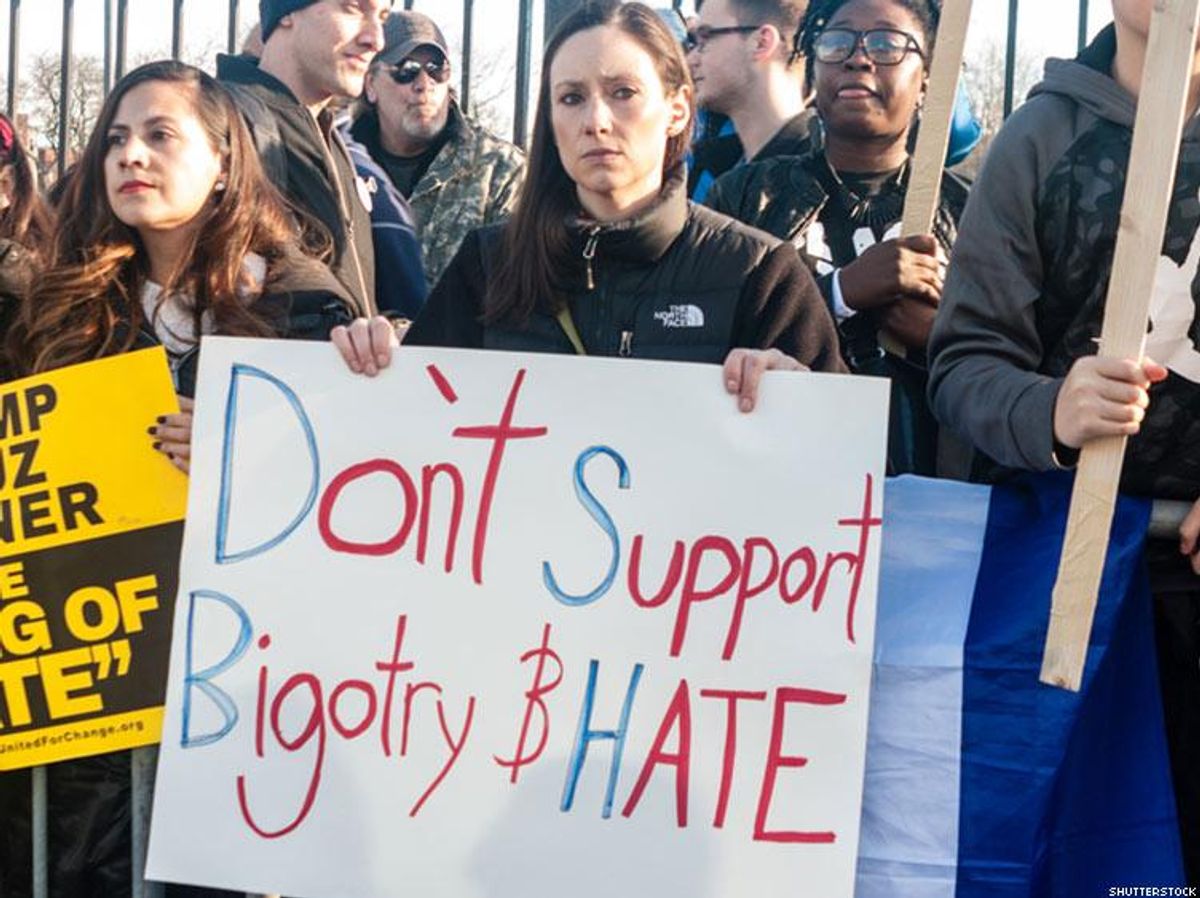The morning after Donald Trump was elected president, the Trevor Project reported that calls to its LGBTQ youth crisis hotline had more than doubled. It was just the first sign of how deeply Trump's win has rattled many young people, with many of our most vulnerable particularly affected -- LGBTQ youth, black and Latinx youth, girls, Muslims, and young immigrants.
Young people are so frightened and unsettled by the election results that some are hiding who they are, wondering if they can still have the future they'd dreamed of and questioning their own safety and well-being.
We know this because we asked them. After the election, the Human Rights Campaign surveyed more than 50,000 young people -- across states, sexual orientations, gender identities, races, ethnicities, religions, and immigration statuses. The results were sobering and heartbreaking.
Seventy percent of participants have seen bullying, hate messages, or harassment during or since the election. Among these participants, 70 percent witnessed an incident motivated by race or ethnicity. More than a quarter of LGBTQ youth said they have been personally bullied or harassed since Election Day -- compared to 14 percent of non-LGBTQ youth -- with transgender young people most frequently targeted. Hispanic and Latinx respondents were 20 percent more likely than other youth to report having been personally bullied, with harassment targeting both immigrant and nonimmigrant communities.
In the survey, undertaken in partnership with the League of United Latin American Citizens, Southern Poverty Law Center, Mental Health America, Trevor Project, Planned Parenthood, True Colors, and National Queer Asian Pacific Islander Alliance, we also invited participants to write about their experiences -- and the stories they shared were truly alarming. Our young people are hearing messages that "Donald Trump is gonna deport you." They are being spit on, called "freaks" or "wastes of space." What's worse, one transgender person of color who is only 17 years old called this harassment "just part of an average day."
As adults, we owe it to our young people to listen -- we need to hear them and we need to act. They are still coming to terms with a national election in which they were not able to vote, but one that will affect their daily lives in very real ways. Our LGBTQ, black, Latinx, Muslim, disabled, and immigrant youth, especially girls and those outside the gender binary, are coming to terms with an administration that ran on a platform of attacking their rights and belittling them.
We must work to end the bullying and harassment they are experiencing -- including in their schools and from those now holding the country's highest offices. They must see us acting with kindness and courage, unwavering in our commitment to inclusion, and we must be their strongest reinforcements when they do the same.
On a hopeful note, our survey showed that most young people feel more motivated to help others than ever before. They talked about volunteering, canvassing for political causes in which they believe, and intervening when they see bullying and harassment. They are not asking to be shielded or treated with kid gloves. But now more than ever they need us to stand with them.
As one young person from Michigan wrote, "My generation ... is working harder than ever to make sure the American dream is accessible to everyone and that everyone is included in our society. They are taking a stand against hate. They are demanding a just world, and are fighting for it."
LGBTQ teens are amazing and they are raising their voices. In a powerful video the Gay, Lesbian and Straight Education Network produced as part of its No Name-Calling Week, high-schoolers from across the country urge President Trump to reject bigotry and hate and serve as a president for all, and GLSEN has mobilized education leaders in a Call to Action to embrace the values of respect and inclusion. Last week in another inspiring action called Reclaim Our Schools, teachers stood up in support of their students -- immigrant, Muslim, LGBTQ -- any and all feeling under attack.
As adults -- whether parents, teachers, neighbors, members of the community -- we need to support young organizers raising their voices and we need to send a strong message to all young people that they are not alone -- that we can and will have their back. There are many ways adults can support the youth in their lives. If you work with youth join some of these actions and, as a teacher, counselor, social worker or other professional, consider joining us at our Time to Thrive conference in April to learn best practices in creating safe spaces for LGBTQ youth. There are still too many young people out there who feel they do not have a single ally in their lives -- who feel hopeless and worry not only about the state of the future but about their ability to live in it.
We need to learn from and support young organizers and we need to act to make the world safe for all our young people. Let's listen -- and let's get to work.
MARY BETH MAXWELL is senior vice president for programs, research, and training at the Human Rights Campaign.


















































































